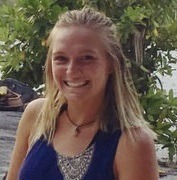
You may be seeing more jobs posted for EMR conversions, but you may not know exactly what this means. Simply put, an EMR conversion is when the hospital updates its medical software.
Many hospitals are converting to EPIC or Cerner and moving away from the older versions. The conversions can last anywhere from a few days to as long as 13 weeks, and pay may be higher than normal. Depending if the hospital is upgrading an existing system or converting to a new system determines how long they’ll need the extra help.
Your training will be very brief, assuming you already know the charting system they’re converting to. I didn’t have to go through a week of orientation for hospital policies and procedures, but I did have to do countless modules. I think it’s safe to say that we’ll never get away from the hours upon hours of learning modules for new assignments! The beauty in this type of assignment is you get to skip the first week of all the extra training that us travel nurses dread.
When the hospital decides to convert or upgrade their system, their demand for staff increases. They’re having to pull people off the unit for computer training and they need travel nurses to fill in, perform patient care, and teach the staff about the new software system. The hospital will be a bit chaotic, so it’s important to understand this before signing the contract. We all know that change sometimes isn’t welcomed and can cause stress, especially to staff nurses that are use to routine.
Not to worry though, the managers will try to ease your stresses with pizza parties and treats (lol). I remember when I did a two week conversion, there was food in the break room every single day. Management knew this was a difficult time so they definitely sucked up as much as they could! They were present on the unit and willing to jump in and help more than usual.
Since the transition can be overwhelming, charting usually isn’t taken as strictly. When converting to a new system, data can sometimes be lost in the process. With this being said, it’s important to keep your own personal notes on meds, I’s and O’s, pain assessments, etc.
Since staff nurses are dealing with a learning curve, it’s not unusual for them to have less patients and for you to have more. Management likes to ease the work load of the staff, so they have more time to concentrate on learning how to chart correctly. In return, you may have a 1-2 patients more than normal for the unit. This is something important to note, and if it’s a concern, it should be asked about in the interview. It’s always beneficial to ask about nurse/patient ratios so there are no surprises.
Another thing to know, you may be asked to work more than three days per week. Ultimately, you are being brought in to bridge the process of this stressful time, so remember to try to be understanding. Always get these details from your recruiter before making your decision.
The EMR conversion assignment I took was only two weeks. In my case, the hospital wasn’t converting to a new software, but only updating their EPIC to a newer version. This was my favorite assignment thus far. I loved how short and sweet the assignment was. I was able to go to Seattle, network like crazy, make memories, and make an abundance of money.
Yes, the work days were a little exhausting, but nothing too severe. The staff was extremely grateful for my efforts, and it was a great opportunity to teach those around me. Since I’m very versed in EPIC, I was able to answer the staff nurses questions more directly than a notebook full of instructions.
Every assignment is a learning opportunity and a chance to grow within your career. I think it’s important to try different directions until you find one that really resonates with you. Even if an assignment is totally new for you, just do your research. Ask your recruiter, the interviewer, and Facebook groups lots of questions. You never know what you could learn from getting outside your comfort zone!

